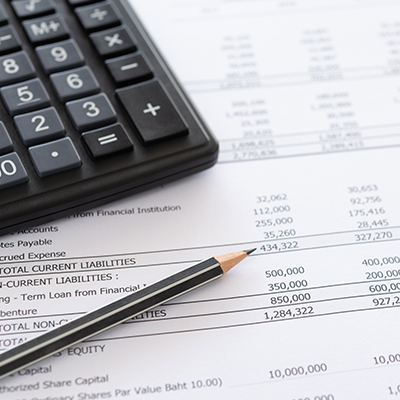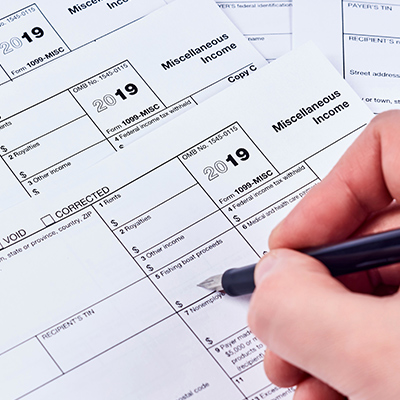BQE Guest Blogger: Leslie Shiner—author, speaker, and trainer—has more than twenty-five years of experience as a financial and management consultant. She is the owner of The ShinerGroup, a consulting firm helping businesses gain financial control.
Thanksgiving is over, the turkey is now just soup stock and the pie is all gone, which means that the end of the year is fast approaching. So now is the time to prepare your company for the end of the year. Notice I didn’t say “now is the time to start planning for the end of the year.” You should have been doing that all year long.
 Many companies get so busy that they fail to consider what should be done before the end of the year. It isn’t until the following April, when they can’t pay their taxes, that they realize there were things they should have done in December. But now it’s too late.
Many companies get so busy that they fail to consider what should be done before the end of the year. It isn’t until the following April, when they can’t pay their taxes, that they realize there were things they should have done in December. But now it’s too late.
You can avoid this situation by taking certain steps before the end of the year.
Clean up your financial statements
If you’re like most small businesses, creating and reviewing financial statements may be low on your list of priorities. But since the IRS requires this information, you’ll have to produce it sooner or later. If you wait until your tax form is due, you are doing all this work for one historical purpose – to prepare your tax return. But if your financials are current and up to date, you can use them to manage your company and quite possibly, legally reduce your tax obligation or defer tax payments to a later year.
It all boils down to knowing whether or not you are making a profit and if so, how much. The first thing you need to do is review your financial statements and make sure that everything is correct.
Checking accounts
I had a client who accidentally entered the same $15,000 deposit twice in his check ledger. He only reconciled his checking account once or twice a year so it was some time before he caught the error. As a result, his Income Statement showed $15,000 too much income. He was in a 35% tax bracket so he ended up paying $5,250 in taxes on income that didn’t exist. He eventually got this money back but in the meantime the government had it for over a year, interest-free.
Accounts Receivable
If you keep your books on an accrual basis it’s important to review your accounts receivable and make sure those amounts are actually collectible. If you are not going to get paid for an invoice, write it off. At least that way you won’t have to pay taxes on money you’ll never collect.
Accounts Payable
I’ve seen a lot of accounts payable invoice lists that include many old bills. Frequently the money is no longer due because the amount was accidentally entered twice or the bill was already paid but not properly accounted for.
If you have old bills in A/P you need to clear them out so you can correct your Income Statement. Just be aware that if you write off an old Accounts Payable bill you will have fewer expenses, more net profit, and therefore, more taxes to pay.
Meet with your CPA or Tax Preparer
Meet with your accountant or tax preparer now – don’t wait until March or April to start thinking about taxes. Together you should forecast your remaining costs and income for the rest of the year and estimate your net income or taxable profit for the entire year. At this point, you can ask your tax preparer what you can do to minimize your tax liability or defer part of it to a later year.
The taxes you defer will eventually have to be paid, but if you are like many small business owners, it’s better to keep the money now to use in your business rather than to give it to the government any sooner than you have to. You don’t really get to “keep” the money; you just have to pay it later – kinda like WIMPY from the Popeye cartoon who was famous for saying: “I’d gladly pay you Tuesday for a hamburger today.”
Depreciation
Most small businesses don’t track depreciation throughout the year, even though the current year’s depreciation can significantly affect the amount of taxes they have to pay.
Ask your tax preparer to estimate how much depreciation you can write off this year because it will be a factor in projecting your net taxable profit. Then ask the important questions: Is it better to buy or lease a new vehicle this year or next? Should you replace or upgrade your computers and/or network this year or next? What other large expenses can you take on this year to take advantage of the favorable tax laws, such as Bonus Depreciation.
Time your purchases correctly
You shouldn’t buy things just to get deductions, but if there is something you really do need to buy there may be some tax advantage in timing its purchase. If your tax preparer knows what your income is likely to be, he or she will be able to tell you whether it makes more financial sense to make purchases before or after the end of the year.
 We are talking about all kinds of purchases. Maybe you need to replace your vehicles or office computers. You might be running low on office supplies or custom-printed forms and letterhead. If you have the cash, you might want to prepay licenses, dues, or legal and accounting fees.
We are talking about all kinds of purchases. Maybe you need to replace your vehicles or office computers. You might be running low on office supplies or custom-printed forms and letterhead. If you have the cash, you might want to prepay licenses, dues, or legal and accounting fees.
Keep in mind that the timing depends on whether you prepare your taxes on a cash or accrual basis. For example, if you’re on a cash basis, you could reduce this year’s taxes by paying January’s rent in December. If you’re on an accrual basis you could purchase something this year, pay for it next year, and still be able to deduct or depreciate it on this year’s tax return.
Credit cards
Credit cards are a way for a cash basis taxpayer to buy something now, legally deduct it now, but pay next year. The IRS treats credit card purchases as loans that can be deducted in the year they occur.
This only applies to third-party cards such as Visa and MasterCard, not the second-party store cards issued by individual vendors. As with any tax deduction, don’t take it without first talking to your tax preparer and finding out what kind of documentation you’re required to provide.
Cash flow
In some cases, cash flow will be the deciding factor in your year-end planning.
A client of mine used to have a hard time pursuing year-end tax-saving strategies because he was always scrambling to come up with enough cash to make a down payment on his liability insurance. To avoid this problem in the future he purchased a six-month policy on January 1 and then switched back to a full-year policy on July 1. Now he no longer worries about a large insurance bill in December.
Prepare those 1099’s now
If you paid more than $600 to anyone who provided a service to your company, you are required by law to send a 1099-Misc form by January 31st of next year.
Too many companies wait until the last minute and then find that they neglected to get the tax ID number. You are supposed to get this number in advance (before you pay for the service) but that doesn’t always happen.
If you can’t track down the payee and have to file 1099’s without a tax ID number, you could be subject to substantial fines from the IRS. So start tracking these numbers now, not waiting until January 30th.
Consider taking money out of the business
Bonuses, dividends, profit sharing plans, 401K’s and defined benefit plans are different ways to pull money out of the company, several of the also reduce your net income. But the rules are very specific – some bonuses can be at the owner’s discretion, while other plans must follow specific non-discriminatory rules. Some plans allow you to decide each year how much to contribute to while other plans lock you into a long-term strategy.
While employee bonuses need to be paid this year to get the deduction, some profit sharing programs don’t require you to pay until you file your tax return next year but can still take the deduction this year.
There are a number of things that should go into the decision to take money out of the company.
First, your Income Statement and Balance Sheet should be accurate and up-to-date; otherwise, you won’t even know if you made a profit. Second, you should be able to project your cash flow because you don’t want to disburse money if it’s going to put your company in a cash flow crunch. Finally, the tax laws are very specific about how and when you can take money out so be sure to talk to your tax preparer before you cut yourself or anyone else a check.
I’ve seen small business owners set up and fund profit-sharing plans, only to discover that they were set up incorrectly. The resulting paperwork and penalties could have been avoided with some simple planning.
The right advice
If your CPA or tax preparer only talks to you once a year, waits for you to send in your financial statements sometime in February or March, or does your taxes without asking any questions, then you may not be dealing with the right kind of person. A good CPA or tax preparer should be helping you all year long, should want to see your financial statements in the middle of the year, and be interested in helping you plan for the end of the year.
Want more tips to increase efficiency and improve your bottom line? Click below to download a free eBook on 5 Billing Practices That Are Killing Your Business.
